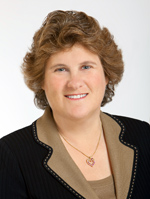
SAN DIEGO — Dear Money Maven, I’ve heard that there are new cost basis rules. What does this mean to me? Sincerely, Confused
Dear Confused,
Essentially, these rules require custodians – like Schwab and Fidelity – to report the cost basis of any securities sold. This way, the IRS can check to make sure that the gain (or loss) you report on your tax return matches what your custodian says. The law for calculating gains or losses from sales has not changed; it’s just that now the IRS can verify the numbers.
With the enactment of these new rules, it’s no longer good enough to simply choose specific shares that will produce the lowest gains. The identification of those shares needs to be communicated to the custodian in order to be recognized by the IRS.
Most custodians automatically assume that shares are sold in the order of first in, first out (FIFO). In fact, this method is required by the IRS absent specific identification. This is the easy way out, but it won’t likely produce the best tax results for you. Let’s take a simple example:
Your portfolio holds 1,000 shares of Fund A. 500 shares were purchased on June 30, 2003 at $20 per share and 500 shares were purchased on November 30, 2008 at $30 per share. In a rebalancing transaction on March 15, 2011, 200 shares are sold at $40 per share. The FIFO method will result in a taxable gain of $4,000. If your advisor specifically identified the November 2008 shares instead of going along with the FIFO default, your gain would have been only $2,000.
Creating the best tax result is not as easy as merely identifying the highest cost shares. It is also important to avoid short-term gains. Short-term gains are taxed at ordinary rates, which can be more than double capital gains rates. Thus, it is better to recognize a long-term gain (held over one year), even if the gain exceeds a smaller gain that would be treated as short-term.
It takes extra effort to identify shares that will produce the lowest tax gains. If you’re managing your own investments, the extra effort could be worth your while. If you’re paying for professional portfolio management, you might want to ask your advisor how your cost basis is being reported.
*
Sheryl L. Rowling, CPA/PFS, partner of Moss Adams Wealth Advisors LLC, has been providing tax, financial planning and investment advice for over 30 years, since 1979. She may be reached at sheryl.rowling@sdjewishworld.com.